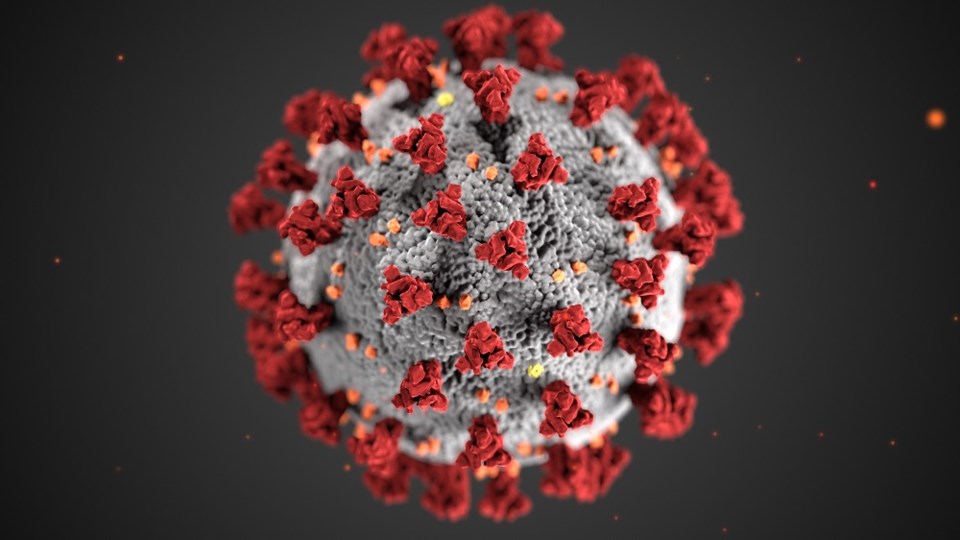On March 16, 2020, when the worldwide COVID-19 pandemic truly began to take hold in the U.S., Collin County Judge Chris Hill issued a Declaration of Local Disaster for Public Health Emergency for Collin County.
At the time, Collin County recorded around 40 COVID-19 cases. Residents waited with baited breath for Hill to issue a stay-at-home order. (That came a week later.)
According to the state health department dashboard, Collin County has had over 70,000 confirmed cases, and 13,000 additional probable cases. In 10 months, 721 residents have died from COVID-19, and medical experts are claiming that we are nowhere close to beating the virus. In fact, Dr. Fauci recently warned against becoming complacent as the virus begins to plateau.
But Hill must not have heard Dr. Fauci's warning. On Friday, Hill rescinded the Declaration of Local Disaster for Public Health Emergency for Collin County.
“Constitutionally protected rights do not cease to exist in the midst of a crisis, and executive orders are (and must always be) subordinate to the provisions of the Constitution,” he wrote in the order.
Hill has a long history of resisting measures to halt the pandemic in the name of personal freedom. In his original March shut-down order, he balked at closing non-essential businesses. He said forced closures “threatened the lives, livelihoods, and liberties of Texans,” and declared all businesses were essential. That declaration lasted a week before public pressure forced Hill to definitively close non-essential businesses.
However, Friday's new order overturned it all, and triumphantly concluded that “there are no county-issued emergency orders, forced closures, or government mandates in Collin County.”
Hill's rescinding of Collin County's disaster declaration drew mixed reviews from the community.
"The emergency measures cannot go on forever," one person wrote on his Facebook. "They were always meant to be temporary and they've been in place for almost a YEAR!!"
"This is a HUGE mistake," another wrote. "...We don't want to go back to square one!"
Others had simply questions about what the announcement meant for restaurant capacity, masks requirements, and life as we have come to know it.
So what does Hill’s order actually mean for daily life? Not as much as one might think.
Just because Hill ended the county’s disaster declaration doesn’t mean state and federal orders are gone. Collin County spokesperson Tim Wyatt says that rescinding the disaster order has “no effect” on Gov. Abbott’s orders, regarding COVID-19. For example, mask requirements and occupancy guidelines that decrease the spread of COVID-19 still apply, even in Collin County.
Yet, even that may change soon. In a press conference last week, Abbott said that he was “evaluating when we're going to be able to remove all statewide orders.”
He promised an announcement soon.
Abbott's Statewide Disaster Declaration
Abbott first asked Texans to limit social gatherings to 10 people on March 19; by the end of March, he closed schools, bars, restaurants, and more. At the time, there were a little over 3,000 coronavirus cases in Texas. According to the Texas COVID-19 dashboard, 41 people had died. COVID-19 was present in 122 of the state’s 254 counties.
In comparison, as of Feb. 28, Texas has 160,268 active cases and there are 1,220 in Collin County alone. In fact, the end of 2020 and beginning of 2021 saw a spike in COVID-19. It was the worst since the pandemic began.
Just before the holidays, Darrell Willis, a Health Care Services spokesperson for Collin County, said that resources become strained when COVID-19 patients occupy 15 percent of hospital beds. “At the 15% threshold, we start to raise eyebrows,” he said. In early January, the region that includes Collin County far surpassed 15% and hit 27% hospitality.
The pandemic is arguably much more severe than when Hill declared a local health disaster. But perhaps Hill and Abbott’s desire to begin rescinding restrictions isn’t based solely on numbers. It could be due to political pressure to reopen, as well as the growing availability of vaccines.
The Rise of COVID-19 Vaccines
Over the weekend, Hill announced on Facebook that this week, Collin County’s vaccine providers will receive 33,100 vaccine doses, helping correct “the vaccine deficit that Collin County was experiencing earlier in the month.”
That isn't the only positive news regarding vaccines.
Last week, Johnson and Johnson debuted their own vaccine, joining Pfizer and Moderna. Unlike its predecessors, Johnson and Johnson’s vaccine requires only one shot, not two. It can be stored at refrigerator temperatures, making it easier to keep and distribute.
Though health experts warn against letting our guards down too soon, the availability of vaccines could reduce stress on hospitals. As more high risk—Phase 1B—citizens receive the vaccine, mortality rates should decrease as well, perhaps driving Hill's decision to rescind the disaster declaration.
“As we continue to respond to COVID-19, I make these two commitments to you and your family,” Hill wrote on Facebook. “If you choose to take the COVID-19 vaccine, I respect and honor your personal decision and our team at Collin County will work diligently to make the vaccine available to you as quickly as possible with excellence, efficiency, and professionalism.
“If you choose not to take the COVID-19 vaccine, I respect and honor your personal decision and I will fight to protect your right to choose and to ensure that the vaccine is #AlwaysVoluntary.”




